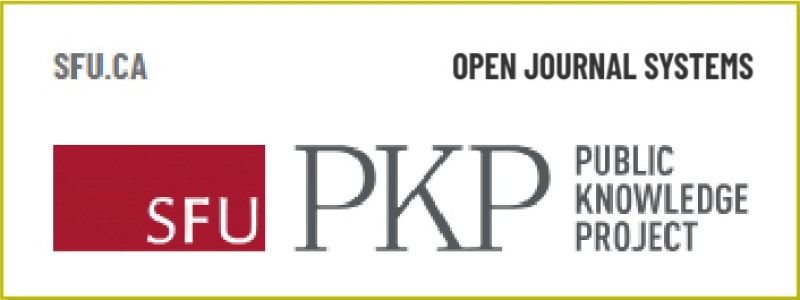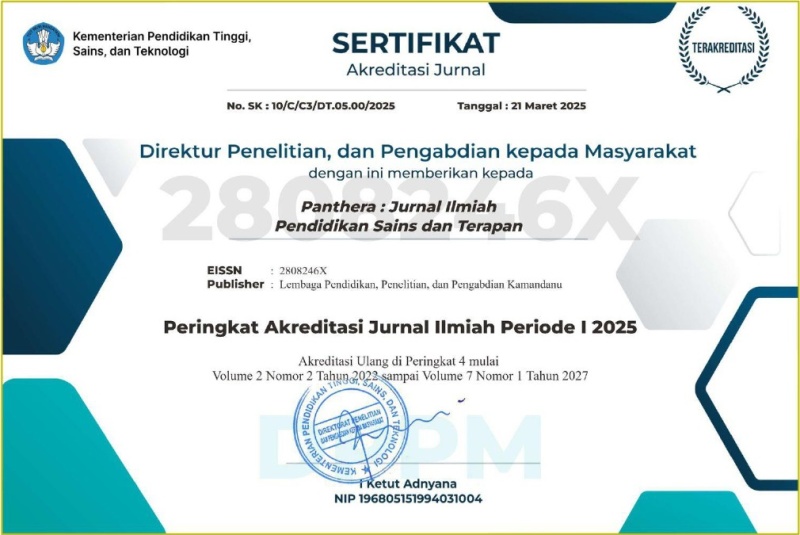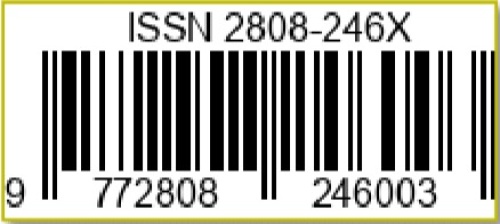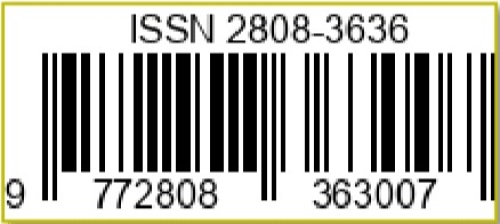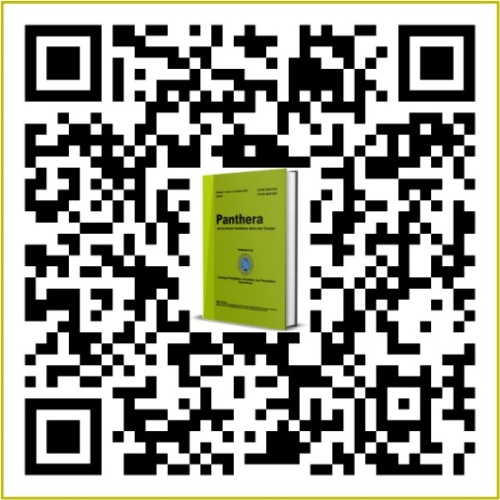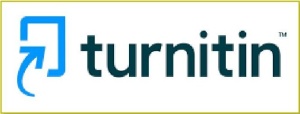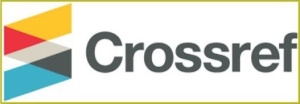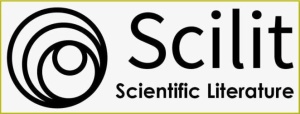Analisis Evaluasi Miskonsepsi dan Pemahaman Konseptual dalam Pembelajaran IPA: Tinjauan Sistematis
DOI:
https://doi.org/10.36312/panthera.v5i2.395Keywords:
Misconceptions, Conceptual Understanding, Science Learning, Systematic ReviewAbstract
This study aims to identify and analyze misconceptions and conceptual understanding in science education through a systematic review. Misconceptions often hinder the correct understanding of scientific concepts. Using a constructivist approach, this study explores cognitive theories that explain the origins of misconceptions and effective strategies to overcome them. Using a systematic review and meta-analysis within the PRISMA framework. This study emphasizes the importance of evaluation tools such as multi-tier diagnostic tests and the Certainty of Response Index (CRI) to identify and correct misconceptions. Analyzing 37 articles revealed that diverse evaluation methods offer valuable insights into students' understanding and misconceptions, each with its own pros and cons. The study findings suggest that science education can diversify teaching methods, improve the quality of evaluation instruments, and integrate technology into learning to support evaluation and address misconceptions. Additional recommendations include teacher training, contextual curriculum development, and ongoing monitoring and evaluation to improve the quality of science education.
Downloads
References
Arafa, M., Dwiastuti, S., Fatmawati, A. S., & Mahanani, L. (2021). The Influence of Novick Constructivism Learning Model on Critical Thinking Skills and Motivation in Online Learning. Biosfer : Jurnal Tadris Biologi, 12(1), 40-50. https://doi.org/10.24042/biosfer.v12i1.9613
Arini, W., & Amalia, A. V. (2023). Development of Three-Tier Diagnostic Test Instrument Based on Multi Representation Website Assistant to Identify Digestive System Misconceptions. Journal of Environmental and Science Education, 3(1), 1-13. https://doi.org/10.15294/jese.v3i1.59124
Bahtaji, M. A. (2023). Examining the Physics Conceptions, Science Engagement and Misconceptions of Undergraduate Students in STEM. Journal of Baltic Science Education, 22(1), 10-19. https://doi.org/10.33225/jbse/23.22.10
Bhakti, Y. B., Astuti, I. A. D., & Prasetya, R. (2022). Four-Tier Thermodynamics Diagnostic Test (4T-TDT) to Identify Student Misconception. KnE Social Sciences, 7(14), 106-116. https://doi.org/10.18502/kss.v7i14.11958
Carey, S., Zaitchik, D., & Bascandziev, I. (2015). Theories of Development: In Dialog with Jean Piaget. Developmental Review, 38(1), 36-54. https://doi.org/10.1016/j.dr.2015.07.003
Chisango, T., Maunganidze, L., Maseko, M., Muchena, B., Ncube, S., Hombarume, L., & Matanga, A. A. (2023). Racial Misconceptions of the Theory of Evolution Predict Opposition to the Theory and Science in General Among a Sample of Zimbabwean University Students. Heliyon, 9(6), 1-13. https://doi.org/10.1016/j.heliyon.2023.e16783
Choi, S., & Yoon, H. S. (2020). Pervasive Misclassification and Misconception of Study Designs in Asian Dermatology Journals Listed in Science Citation Index-Expanded. Annals of Dermatology, 32(5), 383-387. https://doi.org/10.5021/ad.2020.32.5.383
Colicchia, C., Creazza, A., Noè, C., & Strozzi, F. (2019). Information Sharing in Supply Chains: A Review of Risks and Opportunities Using the Systematic Literature Network Analysis (SLNA). International Journal of Supply Chain Management, 24(1), 5-21. https://doi.org/10.1108/scm-01-2018-0003
de Santis, M. D. (2021). Misconceptions about Historical Sciences in Evolutionary Biology. Evolutionary Biology, 48(1), 94-99. https://doi.org/10.1007/s11692-020-09526-6
Deanesia, D., Wulandari, S., & Zulfarina, Z. (2021). Analysis of the Misconceptions of Class XII High School Students in Pekanbaru by Using the Certainty of Response Index (CRI). Journal of Educational Sciences, 5(3), 439-447. https://doi.org/10.31258/jes.5.3.p.439-447
Dewi, E. P., & Wulandari, F. (2021). Identification of Misconceptions in Science Learning During the Covid-19 Pandemic Using the CRI (Certainty of Response Index) Method for Primary school Students. Jurnal Penelitian Pendidikan IPA, 7(Special Issue), 145-150. https://doi.org/10.29303/jppipa.v7ispecialissue.876
Didik, L. A., Wahyudi, M., & Kafrawi, M. (2020). Identifikasi Miskonsepsi dan Tingkat Pemahaman Mahasiswa Tadris Fisika pada Materi Listrik Dinamis Menggunakan 3-Tier Diagnostic Test. Journal of Natural Science and Integration, 3(2), 128-137. https://doi.org/10.24014/jnsi.v3i2.9911
Djarwo, C. F. (2020). Analisis Reduksi Miskonsepsi Mahasiswa setelah Penerapan Model Pembelajaran ECIRR pada Materi Stoikiometri. Jurnal Ilmu Sosial dan Pendidikan, 4(3), 567-571. https://doi.org/10.36312/jisip.v4i3.1338
Fauziah, N., Nafiah, N., Hartatik, S., & Sunanto, S. (2022). Penerapan Media Augmented Reality pada Materi Ilmu Pengetahuan Alam Siswa Sekolah Dasar. Jurnal Sekolah Dasar, 7(2), 103-117. https://doi.org/10.36805/jurnalsekolahdasar.v7i2.2116
Habellia, R. C., Maria, H. T., & Hidayatullah, M. M. S. (2021). Pengembangan Two Tier Diagnostik Test untuk Mendeteksi Miskonsepsi Siswa SMA pada Materi Gerak. Jurnal Pendidikan Informatika dan Sains, 10(2), 195-201. https://doi.org/10.31571/saintek.v10i2.3222
Handayani, S. L., & Arifin, A. (2021). Analysis Students' Misconception in Optical Material Using Three Tier Multiple Choice Diagnostic Test. Physics Education Research Journal, 3(2), 75-84. https://doi.org/10.21580/perj.2021.3.2.8703
Hermita, N., Erlisnawati, E., Alim, J. A., & Putra, Z. H. (2023). Hybrid Learning, Blended Learning or Face-to-Face Learning: Which One is More Effective in Remediating Misconception? Quality Assurance in Education, 32(1), 64-78. https://doi.org/10.1108/qae-02-2023-0019
Hüffmeier, J., Torka, A. K., Jäckel, E., & Schäpers, P. (2022). Open Science Practices in IWO Psychology: Urban Legends, Misconceptions, and a False Dichotomy. Industrial and Organizational Psychology, 15(4), 520-524. https://doi.org/10.1017/iop.2022.69
Kamilah, D. S., & Suwarna, I. P. (2016). Pengembangan Three-Tier Test Digital untuk Mengidentifikasi Miskonsepsi pada Konsep Fluida Statis. Edusains, 8(2), 212-220. https://doi.org/10.15408/es.v8i2.5192
Kumandaş, B., Ateşkan, A., & Lane, J. (2018). Misconceptions in Biology: A Meta-Synthesis Study of Research, 2000-2014. Journal of Biological Education, 53(4), 350-364. https://doi.org/10.1080/00219266.2018.1490798
Kumar, A., & Dcruz, A. F. (2024). Laboratory Science: Representations of Reproductive Biology in Carl Djerassi’s an Immaculate Misconception: Sex in an Age of Mechanical Reproduction. Current Science, 126(6), 646-648. https://doi.org/10.18520/cs/v126/i6/646-649
Kurniawan, I. K., Parmiti, D., & Kusmariyatni, N. (2020). Pembelajaran IPA dengan Model Problem Based Learning Berbantuan Media Audio Visual Meningkatkan Pemahaman Konsep Siswa. Jurnal Edutech Undiksha, 8(2), 80-92. https://doi.org/10.23887/jeu.v8i2.28959
Lestari, A., & Candramila, W. (2023). Analysis of Student’s Initial Concept on Genetic Material in Pontianak City. Jurnal Pendidikan MIPA, 24(3), 627-639. https://doi.org/10.23960/jpmipa/v24i3.pp627-639
Lintang, L., Suprapto, P. K., & Ardiansyah, R. (2021). Four Tier Test Ecosystem: Diagnostic Test to Detect Misconception on Ecosystem Concepts. Bioeduscience, 5(1), 49-56. https://doi.org/10.22236/j.bes/515750
Listyani, P. C. A., Margunayasa, I. G., & Handayani, D. A. P. (2024). Model Pembelajaran Berbasis Masalah terhadap Miskonsepsi IPA Siswa Kelas V SD. Jurnal Media dan Teknologi Pendidikan, 4(1), 88-97. https://doi.org/10.23887/jmt.v4i1.62051
Mairina, V., Firman, F., & Desyandri, D. (2021). Peningkatan Hasil Belajar Siswa dalam Pembelajaran Ilmu Pengetahuan Alam dengan Pendekatan Keterampilan Proses di Sekolah Dasar. Jurnal Riset Tindakan Indonesia, 6(1), 34-39. https://doi.org/10.29210/3003720000
Maknun, J., & Marwiah, M. (2022). Remediation of Misconceptions Vocational High School Students on the Concept of Static Fluids using the Conceptual Change Model. Journal of Technical Education and Training, 14(2), 49-56. https://doi.org/10.30880/jtet.2022.14.02.005
Malaterre, C., Javaux, E. J., & García, P. L. (2023). Misconceptions in Science. Perspectives on Science, 31(6), 717-743. https://doi.org/10.1162/posc_a_00590
Munastiwi, E., Saputro, B., Fatonah, S., & Suhendro, E. (2022). Implications of Online Learning: Trends of Science Misconceptions about Forces in Elementary School. Jurnal Pendidikan IPA Indonesia, 11(3), 500-510. https://doi.org/10.15294/jpii.v11i3.37696
Nainggolan, Y. N., Permadani, K. G., & Prajoko, S. (2022). Analysis of Student's Misconceptions on the Material of the Immune System Using a Three-Tier Diagnostic Test. JPBIO : Jurnal Pendidikan Biologi, 7(2), 158-166. https://doi.org/10.31932/jpbio.v7i2.1681
Najib, A. (2023). Pengembangan Perangkat Pembelajaran IPA Berbasis Virtual Laboratory pada Materi Getaran dan Gelombang di MTsN 3 Demak. Journal Central Publisher, 1(4), 274-288. https://doi.org/10.60145/jcp.v1i4.86
Nikmah, M., Susilaningsih, E., & Astuti, B. (2022). Analysis of Prospective Science Students' Misconceptions about Photosynthesis and Plant Respiration. Innovative Science Education Journal, 11(3), 276-284. https://doi.org/10.15294/jise.v10i1.55150
Okur, M., & Seyhan, H. G. (2021). Effect of the Argumentation-Supported PBL on the Determination of PreService Science Teachers' Misconceptions about the Particulate, Space, and Motion Nature of Matter. International Online Journal of Educational Sciences, 13(4), 1069-1088. https://doi.org/10.15345/iojes.2021.04.009
Özdemir, E. (2022). Animated Concept Cartoons as a Starter for Cognitive Conflict in Online Science Learning: The Case of Circular Motion. Journal of Science Learning, 5(2), 242-249. https://doi.org/10.17509/jsl.v5i2.41191
Page, M. J., McKenzie, J. E., Bossuyt, P. M., Boutron, I., Hoffmann, T., Mulrow, C. D., Shamseer, L., Tetzlaff, J., Akl, E. A., Brennan, S., Chou, R., Glanville, J., Grimshaw, J., Hróbjartsson, A., Lalu, M. M., Li, T., Loder, E., Mayo-Wilson, E., McDonald, S., McGuinness, L. A., Stewart, L. A., Thomas, J., Tricco, A. C., Welch, V. A., Whiting, P., & Moher, D. (2021). The PRISMA 2020 Statement: An Updated Guideline for Reporting Systematic Reviews. Systematic Reviews, 10(1), 1-11. https://doi.org/10.1186/s13643-021-01626-4
Pakpahan, T. R., Hernawati, D., & Ardiansyah, R. (2020). Analisis Miskonsepsi Peserta Didik pada Materi Sistem Saraf Menggunakan Four-Tier Diagnostic Test. Bioeduscience : Jurnal Pendidikan Biologi dan Sains, 4(1), 27-36. https://doi.org/10.29405/j.bes/4127-364844
Pardiyanto, E., & Winarti, W. (2021). Generative Learning Strategy Assisted by Flash Animation to Remediate Students’ Misconceptions on Newton’s Law of Gravity. Jurnal Pendidikan Sains Indonesia, 9(2), 201-216. https://doi.org/10.24815/jpsi.v9i2.18926
Pratiwi, S., Dewi, I. N., & Safnowandi, S. (2021). Respon Siswa Menggunakan Media Pembelajaran Daring Berbasis Aplikasi WhatsApp pada Pembelajaran IPA di Masa Pandemi Covid-19. Panthera : Jurnal Ilmiah Pendidikan Sains dan Terapan, 1(1), 1-11. https://doi.org/10.36312/pjipst.v1i1.3
Putra, B. K. B., Prayitno, B. A., & Maridi, M. (2018). The Effectiveness of Guided Inquiry and INSTAD towards Students’ Critical Thinking Skills on Circulatory System Materials. Jurnal Pendidikan IPA Indonesia, 7(4), 476-482. https://doi.org/10.15294/jpii.v7i4.14302
Putri, V. M., & Amini, R. (2023). Integrated Thematic E-LKPD with RADEC- Based Neapod in Grade V Elementary School. International Journal of Elementary Education, 7(2), 204-211. https://doi.org/10.23887/ijee.v7i2.61224
Radiusman, R. (2020). Studi Literasi: Pemahaman Konsep Anak pada Pembelajaran Matematika. Fibonacci : Jurnal Pendidikan Matematika dan Matematika, 6(1), 1-8. https://doi.org/10.24853/fbc.6.1.1-8
Reyes, F. G., Dávila, E.G., Toro, M. N., Andrade, A. B., & Betancourt, S. G. (2024). Misconceptions in the Learning of Natural Sciences: A Systematic Review. Education Sciences, 14(5), 1-17. https://doi.org/10.3390/educsci14050497
Rosida, N., Widarti, H., & Yahmin, Y. (2022). Diagnostic Test on Chemical Equilibrium Misconception: A Literature Review. Jurnal Pembelajaran Kimia, 7(2), 49-57. https://doi.org/10.17977/um026v7i22022p049
Sadiqin, I. K., Santoso, U. T., & Sholahuddin, A. (2017). Pemahaman Konsep IPA Siswa SMP melalui Pembelajaran Problem Solving pada Topik Perubahan Benda-benda di Sekitar Kita. Jurnal Inovasi Pendidikan IPA, 3(1), 52-62. https://doi.org/10.21831/jipi.v3i1.12554
Sandika, B. (2020). Profile of Students’ Misconception in the Topic of Population using Four-Tier Diagnostic Test. Jurnal Inovasi Pembelajaran Biologi, 1(1), 19-23. https://doi.org/10.26740/jipb.v1n1.p19-23
Sarwar, M. N., Shahzad, A., Ullah, Z., Raza, S., Wasti, S. H., Shrahili, M., Elbatal, I., Kulsoom, S., Qaisar, S., & Nazar, M. F. (2024). Concept Mapping and Conceptual Change Texts: A Constructivist Approach to Address the Misconceptions in Nanoscale Science and Technology. Frontiers in Education, 9(1), 1-14. https://doi.org/10.3389/feduc.2024.1339957
Savitri, O., & Meilana, S. F. (2022). Pengaruh Model Pembelajaran Flipped Classroom terhadap Pemahaman Konsep IPA Siswa Sekolah Dasar. Jurnal Basicedu, 6(4), 7242-7249. https://doi.org/10.31004/basicedu.v6i4.3457
Siahaan, F. E., & Sihotang, C. (2023). Pengaruh Model Pembelajaran Discovery Learning untuk Meningkatkan Pemahaman Konsep IPA Siswa SMP Satrya Budi Perdagangan. Jurnal Simki Pedagogia, 6(1), 161-168. https://doi.org/10.29407/jsp.v6i1.233
Soeharto, S. (2021). Development of a Diagnostic Assessment Test to Evaluate Science Misconceptions in Terms of School Grades: A Rasch Measurement Approach. Journal of Turkish Science Education, 18(3), 351-370. https://doi.org/10.36681/tused.2021.78
Soeharto, S., & Csapó, B. (2022). Exploring Indonesian Student Misconceptions in Science Concepts. Heliyon, 8(9), 1-10. https://doi.org/10.1016/j.heliyon.2022.e10720
Soeharto, S., Csapó, B., Sarimanah, E., Dewi, F. I., & Sabri, T. (2019). A Review of Students’ Common Misconceptions in Science and Their Diagnostic Assessment Tools. Jurnal Pendidikan IPA Indonesia, 8(2), 247-266. https://doi.org/10.15294/jpii.v8i2.18649
Sulistri, E., & Lisdawati, L. (2017). Using Three-Tier Test to Identify the Quantity of Student that Having Misconception on Newton's Laws of Motion Concept. Jurnal Ilmu Pendidikan Fisika, 2(1), 4-6. https://doi.org/10.26737/jipf.v2i1.195
Sunyono, S., Tania, L., & Saputra, A. (2016). A Learning Exercise Using Simple and Real-Time Visualization Tool to Counter Misconceptions about Orbitals and Quantum Numbers. Journal of Baltic Science Education, 15(4), 452-463. https://doi.org/10.33225/jbse/16.15.452
Tarisa, R., Sjaifuddin, S., & Berlian, L. (2023). Analisis Pemahaman Konsep Tema Listrik Sahabat Kita Kelas IX SMP melalui Instrumen Tes 4TMC. Jurnal Pendidikan MIPA, 13(1), 159-169. https://doi.org/10.37630/jpm.v13i1.849
Taufik, M., Yusuf, M. J., & Rijal, A. S. (2020). Constructivism Learning in Writing of Literary Works. Elite : English and Literature Journal, 7(1), 102-111. https://doi.org/10.24252/elite.v7i1a9
Trevors, G. J., Fleury, V., & Kendeou, P. (2022). Examining Evidence for the Effects and Antecedents of Plurality in Revising Science Misconceptions. In Multidisciplinary Perspectives on Representational Pluralism in Human Cognition (pp.163-180). London, England: Routledge.
Wola, B. R., Ibrahim, M., & Purnomo, T. (2020). Development of a Four-Tier Multiple-Choice Test on The Concept of Transport Across Membranes. Science Education Journal, 4(2), 77-97. https://doi.org/10.21070/sej.v4i2.878
Wulandari, D., Maison, M., & Kurniawan, D. A. (2023). Identifikasi Pemahaman Konsep dan Kemampuan Berargumentasi Peserta Didik pada Pembelajaran Fisika. Jurnal Pendidikan MIPA, 13(1), 93-99. https://doi.org/10.37630/jpm.v13i1.817
Yang, D. -C., & Lin, Y.-C. (2015). Assessing 10- to 11-Year-Old Children’s Performance and Misconceptions in Number Sense Using a Four-Tier Diagnostic Test. Educational Research, 57(4), 368-388. https://doi.org/10.1080/00131881.2015.1085235
Yang, T.-C., Hwang, G.-J., Yang, S. J. H., & Hwang, G.-H. (2015). A Two-Tier Test-Based Approach to Improving Students' Computer-Programming Skills in a Web-Based Learning Environment. Educational Technology & Society, 18(1), 198-210.
Yonata, B., Suyono, S., & Azizah, U. (2022). Answers Argumentation Instrument to Strengthen Conception Diagnostic Test on The Concept of Chemical Kinetics: Validity Aspect. SHS Web Konferensi, 149(1), 1-6. https://doi.org/10.1051/shsconf/202214901007
Downloads
Published
How to Cite
Issue
Section
License
Copyright (c) 2025 Titi Laily Hajiriah

This work is licensed under a Creative Commons Attribution-ShareAlike 4.0 International License.
-
Attribution — You must give appropriate credit, provide a link to the license, and indicate if changes were made. You may do so in any reasonable manner, but not in any way that suggests the licensor endorses you or your use.
-
ShareAlike — If you remix, transform, or build upon the material, you must distribute your contributions under the same license as the original.


